The views expressed in our content reflect individual perspectives and do not represent the authoritative views of the Baha'i Faith.
A lone woman, amid a crowd of male diplomats and reporters, requested a pass into the Portsmouth Naval Shipyard—and received it.
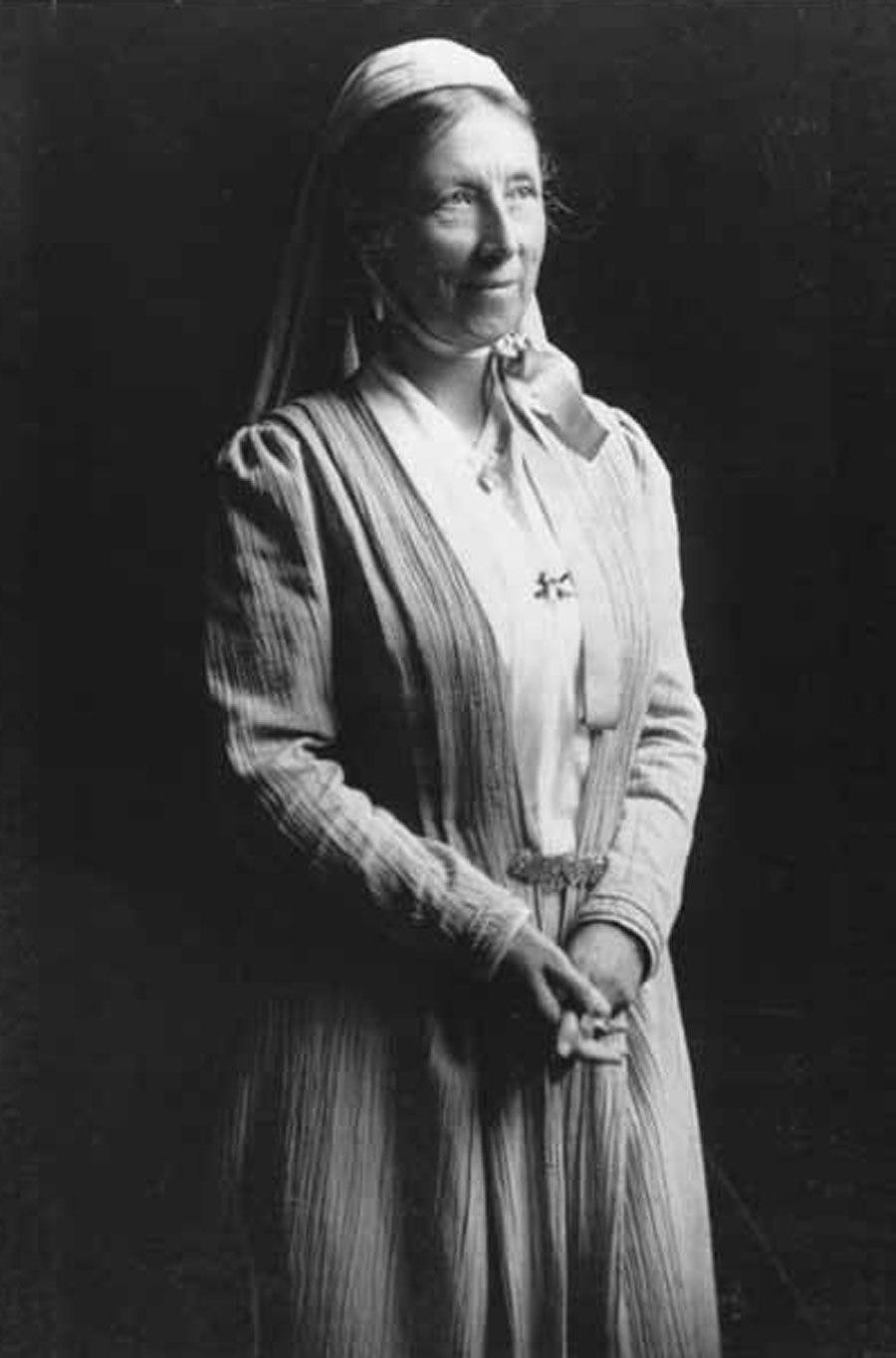
Sarah Farmer
She made her way to the building that would become famous as the site of the signing of the Portsmouth Peace Treaty and begged Admiral Mead, a student of her father’s at the Newport Torpedo Academy 25 years earlier, to be allowed in. The answer was no. Absolutely not.
It had rained for three days, and mud splattered her shoes and the hem of her dress. She waited, watching as important men—the governor of New Hampshire, the mayor of Portsmouth, the captains of the ships that had brought the Japanese and Russian delegates to the area, the peace delegates themselves, and others—arrived in carriages and automobiles and made their way into the peace conference building. Reporters gathered in groups around it, eager for news. A light drizzle fell on her unusual head attire, a little Quaker-like compared to the stylish and elaborate hats of the day. A few men—perhaps all—must have wondered what she was doing there, why she was so intent on observing something she had no business observing.
The treaty—men’s business—involved important governmental concerns. President Theodore Roosevelt himself had arranged for the delegates to come and negotiate the end of a brutal and sustained conflict. It had taken 30 days and had almost not come about, as both sides were loath to make the necessary concessions. Much had been made of the size and other differences between the loud, boisterous Russian diplomat Witte and the demure, small-in-stature Japanese ambassador Komura. The eyes of the world had been fixed on the seacoast area for the whole month, and now, at last, there would be a treaty signing.
From an upper window in the engineering building across the way, Alphonso Staples of Eliot, Maine, saw and recognized the woman, and thought what a shame it was for her to be standing out in the rain. He sent a messenger down to invite her into his own building—a grimy, sooty workplace without even a chair for her to sit on.
Leading the way up the stairs, he showed her how they could see across the road into the windows of the peace conference chamber. In fact, he moved a table under a window so she could stand on it to get a better view. He must have been apologetic about the filth around them, but she didn’t care at all, transfixed as she was upon the events in the conference room.
Turning to her left, out the window she could see her own peace flag waving in the distance—a 36-foot-long banner with the word “PEACE” in green letters against a white background, hoisted high into the air on an 85-foot flagpole made from two ships’ masts. Flying above the Green Acre Inn in Eliot, Maine, visible from Portsmouth, Kittery, and Eliot, it was the first known peace flag in the world.
The year: 1905. The woman: Sarah Farmer, a daughter of New England Transcendentalists, who created a conference center in the small town of Eliot, Maine to bring together people of different races, nationalities, religious persuasions, temperament, and thought, with a single important objective: PEACE.
She turned her attention to the conference table where she had not been welcome. Witte and Komura signed the documents in a solemn ceremonial way, as did their assistants. She watched breathlessly, hoping that this was indeed the end of war—not just this war but all war. Surely humanity had learned its lesson and the path to peace beckoned.
As the men melted the sealing wax with a candle on the table before affixing the seal on a document that changed history, she murmured, “How far that little candle throws its beams.”
Later when asked why she wanted to be there, she explained to a reporter, “I felt that there should be within sight at least one woman representing the women of the two countries who by their self-sacrifice and heroism had sustained the hearts of the soldiers and sailors at the front.”
The reporter probed a little farther and ended his article with this statement from the lone, brave woman: “The candle across the way,” Miss Farmer said, “threw out its cheering message and with a feeling at my heart deeper than any words can convey I said softly to myself, ’How far that little candle throws its beams,’ and I breathed a prayer that this time might be the last that a peace treaty would need to be made to end a war between men who should be brothers.”
Five years earlier, Sarah Farmer had embraced the Baha’i Faith, then headed by Abdu’l-Baha, son of its Founder, Baha’u’llah. Abdu’l-Baha spoke definitively about the role of women and peace:
The world in the past has been ruled by force, and man has dominated over women by reason of his more forceful and aggressive qualities both of body and mind. But the balance is already shifting—force is losing its weight and mental alertness, intuition, and the spiritual qualities of love and service, in which woman is strong, are gaining ascendancy. Hence the new age will be an age, less masculine, and more permeated with the feminine ideals—or, to speak more exactly, will be an age in which the masculine and feminine elements of civilization will be more evenly balanced. – Abdu’l-Baha, quoted by J.E. Esselmont in Baha’u’llah and the New Era, p. 156.
War and its ravages have blighted the world; the education of woman will be a mighty step toward its abolition and ending, for she will use her whole influence against war … In truth, she will be the greatest factor in establishing universal peace and international arbitration. Assuredly, woman will abolish warfare among mankind. – Abdu’l-Baha, The Promulgation of Universal Peace, p. 108.
Strive that the ideal of international peace may become realized through the efforts of womankind, for man is more inclined to war than woman, and a real evidence of woman’s superiority will be her service and efficiency in the establishment of universal peace. – Ibid., p. 284.
In reading such words, Sarah yearned for the new era of peace and equality they promised. Yet there she stood on that day in 1905, begging Admiral Mead for admittance into the peace conference building—unsuccessfully. She did not live to see all of the progress she hoped to experience.
Ahead of her time and heroic by the standards of any age, Sarah Farmer serves as an inspiration to everyone—but particularly to women who address the need for and importance of peace. Surely a sustainable peace will come, when women truly have a place at the peace table.
You May Also Like
Comments



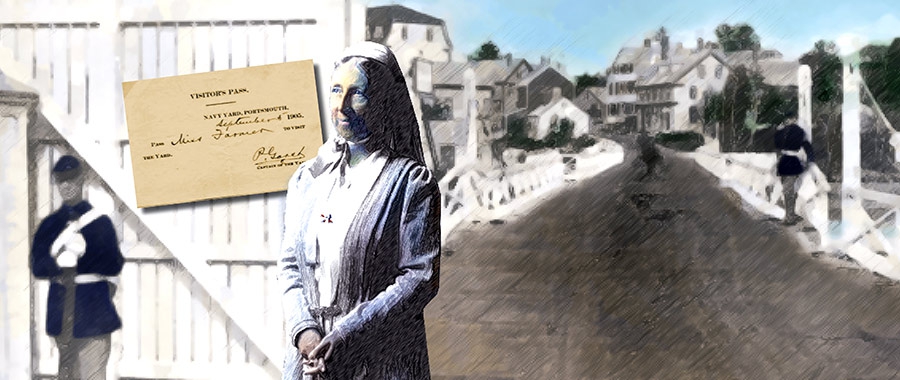
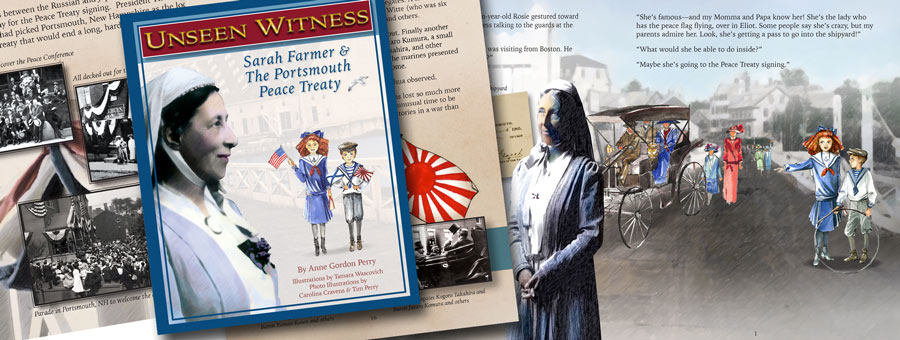
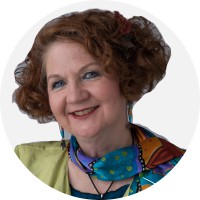

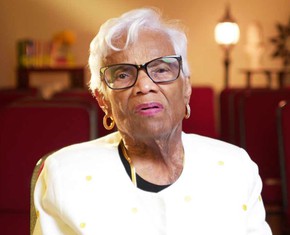










After having recently recently viewed your documentary, Luminous Journey, this article adds another insightful layer to my understanding of the great Sarah Farmer. I am now eager to read your book, Unseen Witness! What an inspiration Sarah is. To me, she is a symbolic pillar of strength and conviction. She will forever be a lighthouse urging and reminding all women to continually persist for the advancement of humanity, bringing to the table our unique perspective as 1/2 of the wings of humanity.